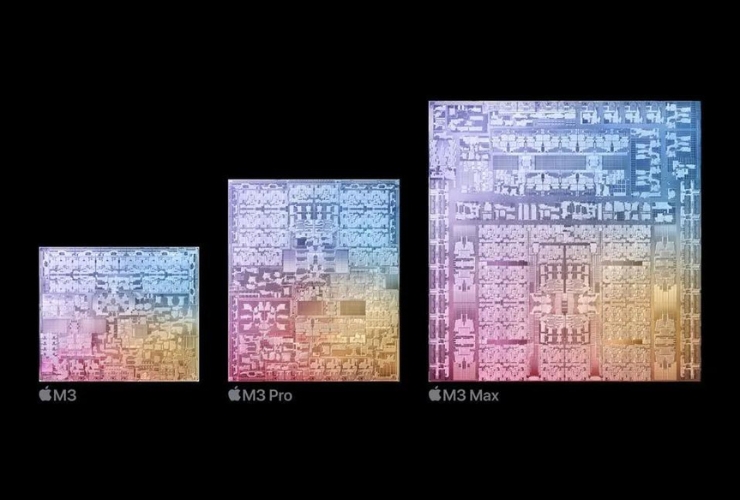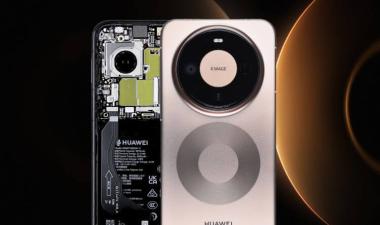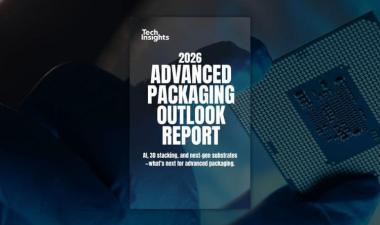Apple’s “Scary Fast” Event Should Scare the PC Industry
Author: Lauren Guenveur
On the evening of October 30th, 2023, the night before Halloween, Apple hosted a dark and spooky-themed event to introduce new Mac products including its next generation of chips. The event, dubbed “Scary Fast,” would serve a double meaning; First, the speed and efficiency of the new M3 family of chips is up to 50% faster than the M1 series, the first generation of their in-house Arm-based chipset. Second, the announcement clocked in at just 30 minutes (which is rather unheard of in tech product announcements).
As many in the press have already pointed out, the event timing was rather unusual, kicking off at 8pm ET/5pm PT. More than that, it followed an announcement by Qualcomm of their new Arm-based Oryon CPU and the Snapdragon X Elite platform for Windows PCs. In the same week, it was reported by Reuters that Nvidia and AMD also had plans to make chips for PCs with Arm technology, entering the market as soon as 2025. The competition against Intel, the world’s leading PC CPU manufacturer which uses x86 architecture, is heating up, though Intel’s CEO has downplayed the significance of Arm in PCs.
Apple, in a rare move, called out their former partner and implored any customer still on an Intel-based Mac to upgrade, now. The new M3 chipset is up to 11 times faster than an Intel-based Mac, which seems an obvious enough reason to upgrade, but Apple would also benefit greatly if all customers were on the same architecture. Consistency across all Apple PCs and other devices (iPhone, iPad, Apple Watch all run Apple silicon) unlocks unparalleled potential in performance and UI.
In another surprise move, Apple lowered the starting price of the new 14-in. MacBook Pro featuring the M3 to just $1599 from $1999. While still firmly in the premium end of the market, the price drop makes the MacBook Pro more competitive against similarly powered machines by Microsoft Surface, Dell Latitude, and HP EliteBook– all business-focused notebooks. It is an open secret Apple is gunning for a larger share of the commercial notebook market and the upgrade cycle between Windows 10 and Windows 11 is a perfect time to engage businesses looking for a change.
The only questionable thing about the price drop is that it comes within $100 of the top-of-the-line 15 in. MacBook Air ($1499), which features an M2 was launched in June of 2023. However, the customer profile of one looking to purchase a MacBook Air versus one looking for a MacBook Pro is far enough apart that this is likely not an issue. As the name implies, Pro is going after heavier PC users, prosumers, and businesses, while Air is strictly consumer.
Beyond the 14-in. MacBook Pro, Apple also announced 14-in. and 16-in. MacBook Pro with M3 Pro or M3 Max, which range in price from $1999 to $3999. And while the new Space Black color introduced to the MacBook Pro is cool, it is worth spending some time talking about the new chips and the advancements that make Apple a more serious contender against Intel.
The M3 series are the first PC chips built using 3-nanometer process technology, which improves speed and efficiency. The M3 series also represents a huge leap forward in GPU technology using new dynamic caching which distributes only the local memory needed to execute a task in real-time - a first in the PC industry, and supports raytracing- a first for Mac. Performance and efficiency cores on the M3 CPU are up to 30% and 50% faster than the M1 series, respectively. An enhanced Neural Engine is up to 60 percent faster than the M1 series, and a new media engine includes support for AV1 decode, allowing higher-quality video from streaming services.
While the boost in performance across the board would entice many Intel-based and M1 Mac users to upgrade, the particular focus on a more performative GPU, raytracing, and Neural Engine paired with unified memory of up to 128GB, is hoping to entice an entirely new set of customers. Developers and gamers alike may start to look at Mac in their next PC purchase. With the exponential growth and use of AI, security, and privacy has been cited as a top concern among businesses and consumers alike. Apple’s faster Neural Engine keeps AI workloads on devices preserving users’ privacy. While CloudAI has more scalability and capacity, it is far less secure, meaning most businesses would prefer to keep some of their workflows out of the public cloud, a situation that Apple is hoping to capitalize on.
The M3 series and MacBook Pros launched at Apple’s “scary fast” event represents one of the more consequential launches for Apple (although it may not have seemed so) as the PC industry is expected to return to growth in 2024 after a post-COVID era decline. The critical mass of upgrades in the PC space is not expected until 2025, but as the old idiom goes “the early bird catches the worm.”











